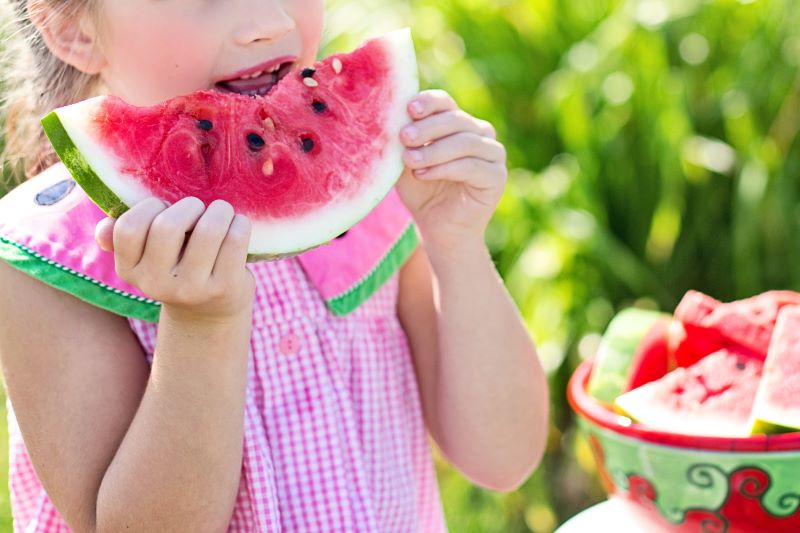
As online learning treads on, we are discovering that some children may be struggling more than others. During traditional education and in remote learning, your child faces a multitude of things that can affect focus and attention. Sometimes, we don’t pay enough attention to some simple everyday things that we do have control over. A major example is what our kids are eating and how it could be negatively affecting their ability to focus, pay attention, learn, and retain new things.
Artificial Food Dyes Commonly Found in Food
It’s possible that some or even a lot of the food your child eats including breakfast cereal, macaroni and cheese, candies, cakes, sodas, and chips plus more are loaded with artificial dyes. Once made from coal tar, dyes are now made from petroleum and are cheaper than natural dyes that come from fruits and vegetables. Studies suggest that when your child puts food with artificial dyes in their mouth, you can bet there'll be some kind of effect on their behavior.
What we recommend:
Read labels. The FDA requires artificial colors to be listed by name. Look for colors that come from nature. Your best bet is to reduce the amount of processed food you're purchasing and stick with whole fruits, vegetables, and healthy grains in the way that nature intended them.
Processed Food and Sugar Intake
Scientists have long known that processed sugar affects a child's behavior. Refined sugar and carbohydrates enter a child's bloodstream quickly and trigger adrenaline that can lead to a child being more active. Scientists recommend limiting the amount of processed sugar your child eats.
Sugar has long been understood as the reason for hyperactivity in children and scientists are taking a good hard look at food dyes. In October 2011, the British government asked food manufactures to remove most artificial dyes from food, while in the United States, the Food and Drug Administration (FDA) convened an advisory committee to study the effect of the dyes on children.
The committee determined there was not enough scientific evidence to prove a link between artificial food coloring and hyperactive behavior in children, but said enough uncertainty exists to justify more research. Proven or not, it doesn’t take a rocket scientist to know that processed sugar in excess will do lots of harm to a person at any age.
What we recommend:
Your child will definitely not enjoy saying goodbye to their favorite cookies and cakes, so we recommend gradually making swaps for artificial sugar with foods that are naturally sweet. Try incorporating more fresh fruits like bananas, berries, peaches and grapes into your day to day meals. Introduce more unique fruits that they may have never had like dates, prunes, apricots, dragonfruit, jackfruit, etc. When they start to taste a great variation of what nature has to offer, their taste buds may actually start to crave the artificially sweetened foods less and the healthier foods more.
Pesticides
Children exposed to high levels of pesticides in fruit and vegetables are more likely to have attention deficit hyperactivity disorder (ADHD). Maryse Bouchard, a researcher in the department of environmental and occupational health at the University of Montreal told CNN that pesticides are designed specifically to have a toxic effect on the nervous system because that's how they kill insects. “So it seems plausible that exposure ..could be associated with ADHD-like symptoms,” she said.
What we recommend:
Opt for organic foods when possible, especially produce. Many people believe that organic foods lack any pesticides at all. This is not true, but they are produced using methods that use less harmful pesticides. Be aware of the dirty dozen and the clean fifteen.
Dirty Dozen: This phrase means that you should absolutely always purchase organic for these items. This is because the skin of these foods have a very permeable outside shell or covering which allows pesticides to seep all the way in. You cannot wash pesticides off the dirty dozen food.
- Strawberries
- Spinach
- Kale
- Nectarines
- Apples
- Grapes
- Peaches
- Cherries
- Pears
- Tomatoes
- Celery
- Potatoes
The Clean Fifteen: It’s safe to purchase conventionally grown produce that falls under this list. These foods have a protective outside layer that is often not consumed. The skin of these foods is often very tough and pesticides can not enter the actual fruit.
- Avocados
- Corn
- Pineapples
- Cabbage
- Sweet Peas
- Onions
- Asparagus
- Mangoes
- Papayas
- Kiwi
- Eggplant
- Honeydew
- Grapefruit
- Cantaloupe
- Cauliflower
Television
Even “SpongeBob SquarePants” can have a negative effect on how your child functions. The cartoon about sea creatures is so fast paces that the scene shifts about five times every 60 seconds. Researches found that kids who watch the fast-paced cartoon did less well on attention tests than those who spent the same amount of time drawing. They also did less well than children who watched slower paced cartoons.
What we recommend:
Monitor the time your child spends in front of the television. Encourage them to be creative and draw or write or read or go outside if possible and get fresh air.
Smart Phones, Video Games, and Screen Time
In addition to causing aching thumbs from typing on a small area, smart phones are capable of just about everything these days. When left to their own devices (pun intended) kids could find just about anything on the internet, which in many cases is not a good thing. Modern gadgets have caused an increasing number of health problems in children who spend too much time on them. Pains in the thumbs and wrist are often accompanied by neck pain from staring at the small screens so long.
What we recommend:
Usage should be controlled and monitored by parents. When your child takes their online class, try lowering the brightness of their screen, and investing in a blue light filter for your computer or even blue light glasses for your child.
Helping your child to focus while they learn may be one of the most challenging things we can think of. This is especially true when they are first introduced to online learning. While we highly recommend brain breaks, routines, and affirmations to help your child focus, we can’t lose sight of even simpler things that may contribute to their downfall.
Is your child struggling with online learning? We get that it can be tough. Sign up for a free class and assessment today at Math Genie and help your child at a prime time in their life that will serve them forever! We can’t wait to meet you.
-The Math Genie Team
Sources: https://www.smartkidswithld.org/getting-help/adhd/artificial-food-dyes-behavior/#:~:text=Many%20children%20are%20sensitive%20to%20synthetic%20dyes.&text=Because%20AFCs%20also%20impact%20an,in%20an%20additional%20250%2C000%20kids.https://pubmed.ncbi.nlm.nih.gov/1945637/#:~:text=Foods%20high%20in%20refined%20sugar,on%20inattention%20have%20been%20equivocal.
https://www.sciencedirect.com/science/article/abs/pii/S0161813X12000071





